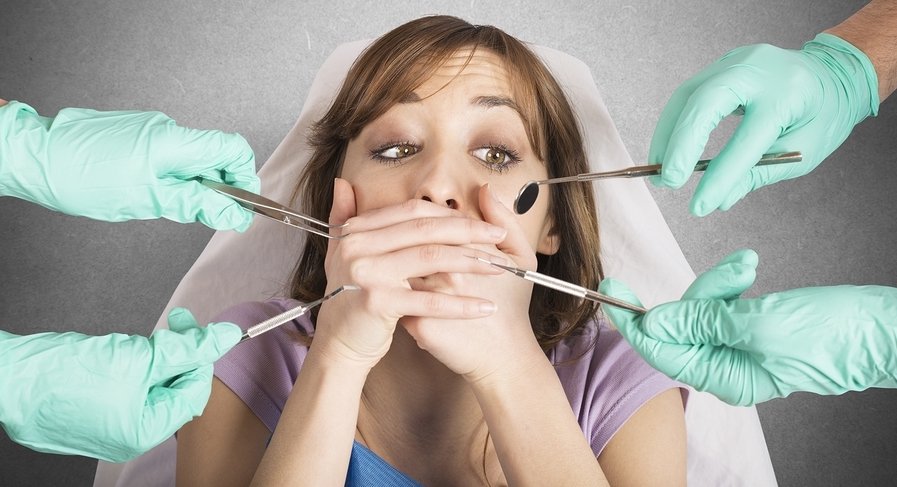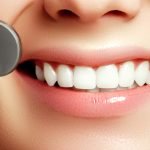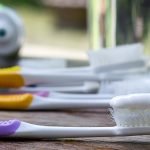No one actually enjoys a visit to the dentist. Even if you are just there for your checkup and cleaning, it’s not the most pleasant of experiences. We can all think of a long list of places we would rather be than tilted back in a chair with a person sticking a variety of sharp metal instruments into our mouths and scraping our teeth, with the scent of disinfectant in the air.
And that doesn’t even include the joy of holding still while biting down on a piece of plastic for x-rays or, heaven forbid, having to get a cavity filled or worse (a surgical procedure like a root canal). But if your dental discomfort turns into a fear or an all-out phobia, it may impact more than just your nerves the day of the appointment. According to new research, your fear of the dentist might affect other aspects of your life.
The study, which was conducted at the Kings College London Dental Institute in the United Kingdom, found that dental fears may inflict significant damage on a person’s emotional well-being and overall quality of life.1 Heidari, E.; et al. “The oral health of individuals with dental phobia: a multivariate analysis of the Adult Dental Health Survey, 2009.” British Dental Journal. 21 April 2017. Accessed 7 May 2017. http://www.nature.com/bdj/journal/v222/n8/full/sj.bdj.2017.361.html.
The investigators reached this conclusion after poring over responses to the 2009 Adult Dental Health Survey as completed by close to 11,000 men and women living throughout the U.K. More than 10 percent—a total of approximately 1,400 people—reported being extremely fearful of dentists. And these numbers are not surprising. According to a 2009 study at the Academic Centre for Dentistry Amsterdam in the Netherlands, dental fear was shown to be the most common type of phobia, and it was rated more severe than any other phobia examined.2 Oosterink, F.M.; et al. “Prevalence of dental fear and phobia relative to other fear and phobia subtypes.” European Journal of Oral Sciences. April 2009. Accessed 7 May 2017. http://www.ncbi.nlm.nih.gov/pubmed/19320722.
The results of the current research indicate that the subjects who report a fear or phobia are more likely to have one or more missing or decaying teeth. That is hardly shocking since we can assume that those who are frightened of dental work probably don’t visit their dentist as often as recommended. And that leads to the second aspect of the findings, that those with dental fears have a depleted quality of life.
This makes perfect sense when you consider that a person with a couple of missing or noticeably damaged teeth might be rather embarrassed to be in situations that involve talking or smiling, not to mention the pain and difficulty they likely experience while eating. It would make social interactions awkward and uncomfortable and could very possibly lead to increasing withdrawal and isolation over time, which would greatly impact emotional health.
In addition, poor oral health can take a significant toll on a person’s physical well-being. Gum disease has been linked to a number of serious conditions including rheumatoid arthritis, respiratory illness, diabetes, Alzheimer’s disease, and heart disease.
So what do you do if you are simply terrified of going to the dentist? Take a two-pronged approach that involves both learning to manage your fears of visiting the dentist and taking better care of your teeth at home. If your teeth and gums are still healthy, you can go a long way toward keeping them in good shape by focusing a little extra energy on your routine. Brushing twice a day is essential, but not enough. You should also incorporate daily flossing to remove food particles stuck between teeth. Make a natural mouthwash that contains peppermint or rosemary leaf, which are both good bacteria fighters. And take systemic proteolytic enzymes to help dissolve plaque and boost your immune system.
As far as mentally preparing yourself for a dental visit, you should begin by finding a dentist who is proficient at dealing with phobic or anxious patients. Choose an office where you feel comfortable with not only the dentist but with the hygienist and reception area staff as well, since they will all be affecting your experience. In the weeks before an appointment, work toward achieving a relaxed state through meditation or breathing exercises so you can put the techniques to work once you sit in the dentist’s chair. You might not be thrilled to be there, but you just might feel calm enough to make it through your visit successfully.
References
| ↑1 | Heidari, E.; et al. “The oral health of individuals with dental phobia: a multivariate analysis of the Adult Dental Health Survey, 2009.” British Dental Journal. 21 April 2017. Accessed 7 May 2017. http://www.nature.com/bdj/journal/v222/n8/full/sj.bdj.2017.361.html. |
|---|---|
| ↑2 | Oosterink, F.M.; et al. “Prevalence of dental fear and phobia relative to other fear and phobia subtypes.” European Journal of Oral Sciences. April 2009. Accessed 7 May 2017. http://www.ncbi.nlm.nih.gov/pubmed/19320722. |












Interesting and educative
Interesting and educative
I have been practicing
I have been practicing dentistry 51 years. Just as early general education is important, so is early dental education, not only of the child, but of the parents of young children. Getting off to a good early start is important. I encourage parents to bring children to their cleaning and checkup appointments as observers rather than participants. The children become aware of this non-threatening procedure passively. They are given a toy and a ride in the chair if they are receptive. No coercion or coaxing takes place that would make the experience negative. If they are amenable, I will introduce them to the mirror, the light, the air/water syringe and the prophy brush unless or until they lose interest. I also ask the parents never to say anything negative about visiting the dentist in the child’s presence.
It is important that the parents understand the etiology of tooth decay as it relates to diet and hygiene, and why it is important that the primary teeth be cared for until they exfoliate naturally. Prevention really works in dentistry. Loss of the first tooth without remediation can be the beginning of a long downhill slide into dysfunction that plagues the adult dentition.
;
Another example of Jon Barron
Another example of Jon Barron’s sensitivity to human nature. I never had anxiety about going to the dentist because I thought they were experts. (Until later in life when I became aware of the fact that dentist are only human and can make mistakes). I have a family member who is anxious about dentist visits so I made a printout of some of Mr. Barron’s points.